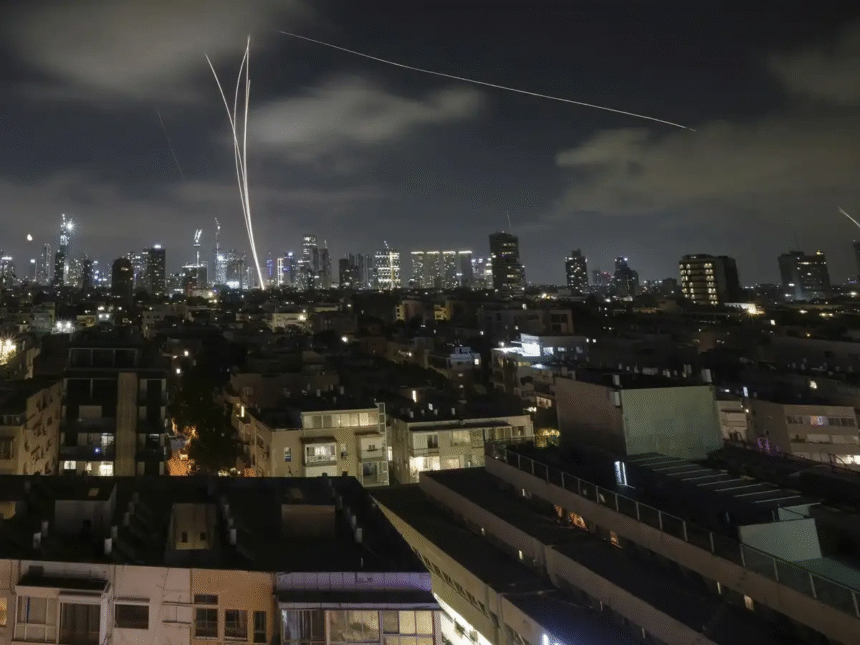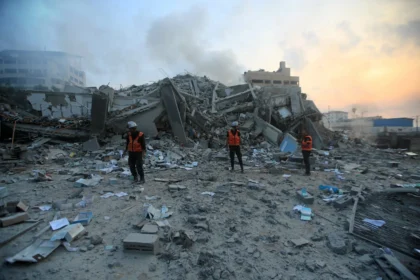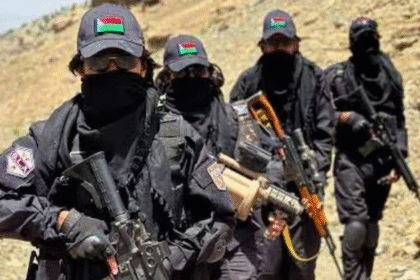Israel and Iran Exchange Military Strikes Amid Escalation — Trump Signals Possible 2025 Intervention
Tensions surge as Israel and Iran exchange military strikes in a sharp 2025 escalation. Former President Donald Trump signals possible involvement as global concerns mount
Israel and Iran traded fresh strikes early Wednesday as the conflict entered its sixth day. President Donald Trump is weighing whether to strike Iran, and residents are continuing to flee the capital, Tehran. On social media, Trump demanded unconditional surrender from Tehran, without detailing what that would mean. Trump also said Washington knew the exact location of Iran’s supreme leader, Ayatollah Ali Khamenei, though he said the United States had no plans to target him, “at least not for now.” Trump’s remarks come at a time of weakness for Tehran, whose power is at a low ebb after a year of Israeli attacks against its regional proxies…
As of June 17, 2025, the Middle East is witnessing one of its most intense escalations in recent years, with Israel and Iran engaged in a fierce exchange of military strikes. The conflict has already resulted in significant casualties and widespread destruction, prompting global concerns about the potential for a broader regional war. Former U.S. President Donald Trump, who has recently returned to political prominence, is reportedly considering direct U.S. military involvement, a move that could dramatically alter the trajectory of the conflict.
The current wave of violence began on June 13, 2025, when Israel launched a series of airstrikes targeting Iran’s nuclear facilities, military installations, and ballistic missile sites. In response, Iran has fired numerous ballistic missiles at Israeli cities, including Tel Aviv and Haifa, causing at least 24 civilian deaths and over 600 injuries. The Iranian missiles have overwhelmed Israel’s Iron Dome defense system, leading to widespread panic and evacuations. Nearly 2,700 residents have been displaced, and the country’s infrastructure has suffered extensive damage.
In Tehran, the situation is equally dire. Israeli airstrikes have targeted key military and nuclear sites, leading to the deaths of at least 585 people and injuring over 1,300. Power outages, fuel shortages, and communication breakdowns have left many residents in a state of fear and uncertainty. The Iranian government’s response has been limited, with many civilians feeling abandoned.
Initially, the Trump administration maintained a stance of non-involvement, emphasizing the importance of diplomatic efforts. However, as the conflict has intensified, President Trump has signaled a shift toward potential military engagement. Reports indicate that the U.S. is preparing to deploy advanced military assets to the region, including F-22 and F-35 fighter jets, as well as aircraft carriers like the USS Nimitz. The administration has issued a two-day ultimatum to Iran, demanding the cessation of its nuclear program or facing overwhelming military action.
Trump has publicly praised Israel’s military actions, describing them as “excellent” and “very successful,” while warning of even more destructive strikes if Iran does not comply. He has also suggested that Israel would take a leading role in any joint military operation, with the U.S. providing support as needed.
The potential U.S. involvement raises several strategic questions. Israel has long maintained that it would act unilaterally to prevent Iran from acquiring nuclear weapons. However, the scale of the current conflict and the capabilities of Iran’s military have prompted discussions about the need for U.S. support. Analysts suggest that without American assistance, Israel may struggle to achieve its objectives, particularly concerning the destruction of Iran’s deeply buried nuclear facilities, such as the Fordow enrichment plant.
The U.S. has reportedly approved the sale of advanced bunker-busting bombs to Israel, which would be critical in targeting Iran’s fortified nuclear sites. These weapons, combined with U.S. logistical support, could significantly enhance Israel’s military capabilities. However, such actions also risk escalating the conflict into a broader regional war, with potential involvement from other actors, including Hezbollah and proxy groups aligned with Iran.
The ongoing conflict has already had significant global implications. Oil prices have surged due to concerns over disruptions in the Strait of Hormuz, a critical chokepoint for global oil shipments. Markets are reacting nervously to the uncertainty, with investors closely monitoring developments.
International organizations, including the United Nations, have called for an immediate ceasefire and the resumption of diplomatic negotiations. However, both Israel and Iran have shown little willingness to de-escalate, each citing existential threats to their national security.
Read Also : Iran Launches Missile Strikes on Tel Aviv and Haifa: Israel Conflict Escalates into Day 4 with Major Attacks








